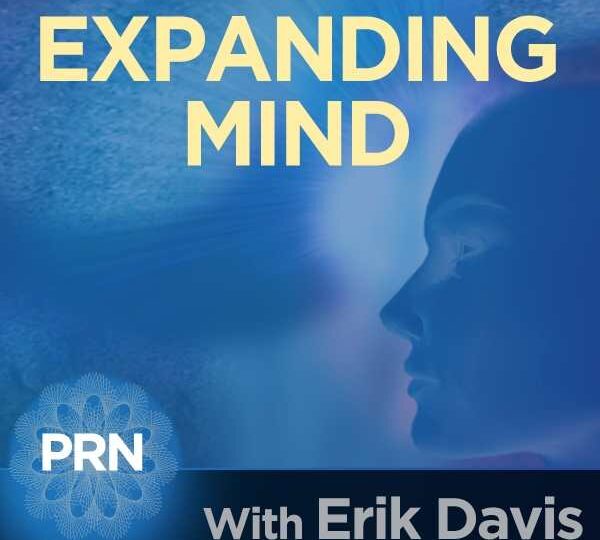
Jeff Warren’s The Head Trip
Last summer I met Jeff Warren, a Canadian science writer and radio guy who was cruising around the West Coast talking to folks about consciousness. We had an amazing chat, which I intend to post as soon as I get the podcast flow going (where is the AV monkey of my dreams?). Jeff is my kinda guy: an experiential pragmatist in the William Jamesian mode, he is restlessly eclectic, deeply informed but pop, aggressively open to (and dissatisfied with) both neuro-reductionist and mystical accounts of consciousness, and keenly aware of the anthropological soup all this stuff is floating in. He’s also a great conversationalist, which means he is a great listener, and for me “understanding consciousness” is, at the most fundamental level, all about listening.
Warren’s personal temperament makes him an unusually worthwhile science writer—a breed of prose-slinger whose cognitive creativity often extends little beyond building metaphors for knowledge delivered from on high. There are tons of books about consciousness, but Warren’s new release, The Head Trip: Adventures on the Wheel of Consciousness, is an entertaining, substantive, and deeply stimulating book that, by staying focused on the concrete, actually contributes something to the field, or my understanding of it anyway.
Part of this contribution lies in Warren’s pop phenomenological approach, which you think would be more widely practiced, at least in mainstream accounts of consciousness studies. Warren brackets the “what is consciousness” debates, with their almost theological cast, and instead takes a closer, experiential look at the various states of the stuff we can all more or less agree on. So the book is organized around a “wheel of consciousness” that includes a variety of mindstates we might journey through in a given day, ranging from common dimensions like REM sleep and daydreams to rarer regions like hypnotic trance and the Zone. In language that is alternately acute, conversational, hilarious and a bit cutesy (I could have done without the Rastafarian Buddha he imagines at the end of the book), Warren puts his own mind on the line, exploring these states from the inside, all the while talking to researchers and digging an impressive array of theoretical and experimental gems out of the vast fields of research.
The book starts out very strong with fascinating chapters on hypnogogia and “the Watch,” two topics I have long fascinated me but which, surprisingly, are rarely discussed at length in intelligent but accessible sources. Hypnogogia is one of my favorite mindstates, having triggered some of the most powerfully weird experiences of my life, from alien contact to ancestral visitations to mystic cosmic downloads to sheer fucking terror. Summarizing some of the scant research on the topic, Warren reframes hypnogogia, not simply as a passageway between waking and sleeping, but as an integral mode of consciousness that allows waking awareness access to the creative and associative logic of the dream.
The chapter on what Warren calls “the Watch” was even more fascinating. I had already heard bits and pieces about the fact that folks in the old days slept very differently then the straight eight hours we aim for today (and I, for one, rarely hit). As Warren explains, before we were disciplined by artificial light and the modern workweek, Euro-Americans commonly divided the night into “first sleep” and “second sleep,” two bouts that were bridged by a period of wakefulness often described in delicious terms. Warren’s discussion about the various rhythms that move and constrain our daily round proves that, like so many things, even the basic beats of consciousness are partly cultural constructions.
And that’s the big take-away from The Head Trip: the fundamental plasticity of the brain, and the corresponding plasticity—and programmability—of conscious experience. Something in me cringes in philosophical horror when I hear New Agers proclaim that “we create our own reality,” but in some basic neurological ways, it’s true. Expectations, the placebo effect, habits, biofeedback training, meditation—all these point to a fundamental mutability in the brain-mind, a mutability that Warren argues should be cause for great enthusiasm, not to mention proactive engagement, political and otherwise. Here’s one experimental finding that intrigued me: the likelihood that a dreamer will experience a lucid dream is not increased by their desire to have one. What does the trick is their expectation that they will have one.
Stepping fairly carefully through these dangerous waters, and usually grounding his speculations in studies, Warren gives us a much more interactive picture of consciousness than the wiring diagrams and evolutionary-psych workouts we have come to expect from pop science accounts of the mind. He also productively shows how some zones of consciousness can be understand as the result of a kind of remix of fundamentalal mental elements—so that, for example, lucid dreaming can be understood as the emergence of outward-directed attention within the model-spewing dream-mind. This remixology is something I have glimpsed through meditation, and which James Austin talks about in Zen and the Brain: deep states of clarity seem to emerge after certain zones of the brain seemingly go to sleep, so that actually allowing oneself to slightly drift off can sometimes boot up a deeper, steadier quality of wakefulness.
Over the course of the book, Warren does a find job of building his map of consciousness, and especially showing the similarities between certain regions of sleep and waking, as if both realms are reflecting a more fundamental process of modeling and attention. His final major chapter, on meditation, is a little thin, partly because he is not really a practitioner and sticks a little closely to the orthodox maps; much better is the rather similar territory covered in his fascinating discussion of SMR. I am saddened, however, that a book with a title like this does not include the sort of smart, well-informed accounts of psychedelic experience that we need. From his regular references to Huxley, Huston Smith, etc., it’s pretty clear that Warren is, uh, experienced—which is, after all, the only noble position for a consciousness researcher to have, at least one guided by experiential pragmatism. Given the political reality (and the can of worms problem) this absence is understandable, if disappointing, and hardly mars what should become an easy-entry classic in the shelves of consciousness studies.




